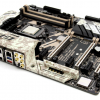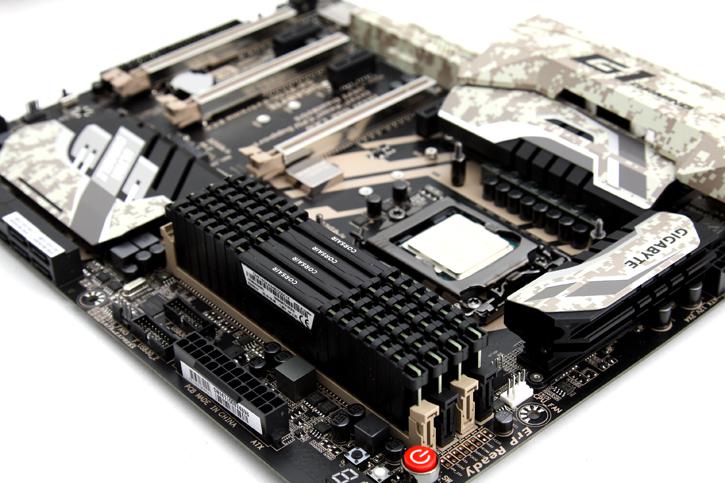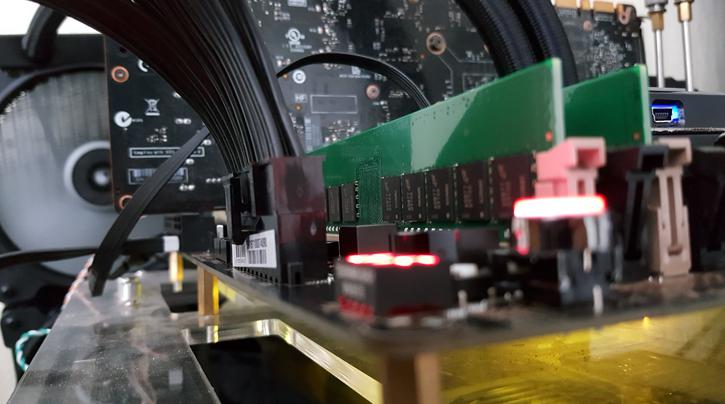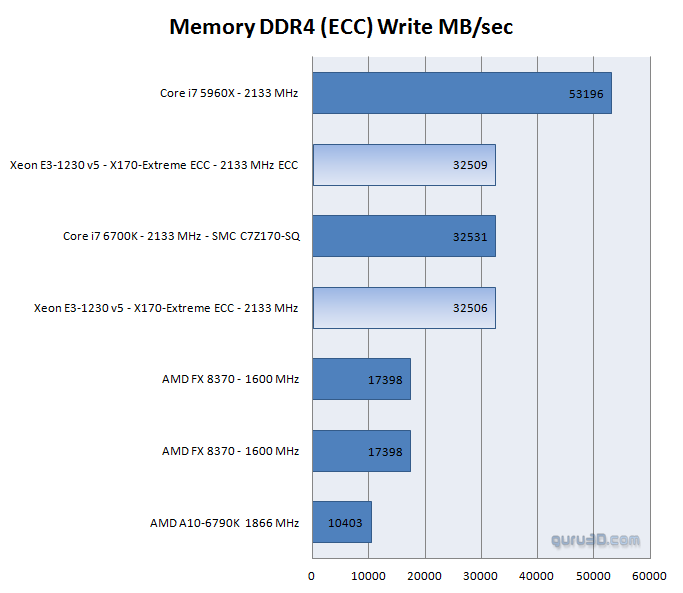Performance System Memory: DDR4 Dual Channel Memory
Performance System Memory: Memory Read Test
So for memory we had some good stuff to work with, Intel has a couple of certified partners for memory to get some sweet XMP profiles going. We test memory at the default rated max Intel spec at 2133 MHz for DDR4.
Regular DDR4 memory
What you will notice is pretty far our dual-channel read and write numbers. You are basically hovering over the 30GB/sec range and closing in on 33K with Write perf. This is your regular 2133MHz DDR4 memory.
ECC DDR4 memory
Throughout our benchmark session we however will be using a 16GB (2x8GB) kit from Kingston. Error-correcting code memory (ECC memory) is a type of computer data storage that can detect and correct the most common kinds of internal data corruption. ECC memory is used in most computers where data corruption cannot be tolerated under any circumstances, such as for scientific, computing or servers (front-end and databases). Typically, ECC memory maintains a memory system immune to single-bit errors: the data that is read from each word is always the same as the data that had been written to it, even if one or more bits actually stored have been flipped to the wrong state. Most non-ECC memory cannot detect errors although some non-ECC memory with parity support allows detection but not correction.
One argument is that ECC memory should be more stable for your system, there's definitely truth in that. But anno 2016 with Windows 10 really, how many memory related crashes do you see these days ? Another claim is that ECC due to its Error-correcting implementation will be a lot slower and thus would offer less bandwidth.
It's not slower at all. Well let's check that out:
Lovely. Still; there is one caveat though. If you use a Xeon Processor, XMP profiles will not be available to you. Meaning 2133 MHz is pretty much your highest data-rate opposed to all the luxurious 3200+ MHz kits out there based on XMP 2.0.
Performance for ECC is roughly equal. It actually was a notch faster compared to non-ECC. This could be timings, but also the DIMM configuration (2x8 and 4x4GB configuration do take a toll on the memory controllers).







